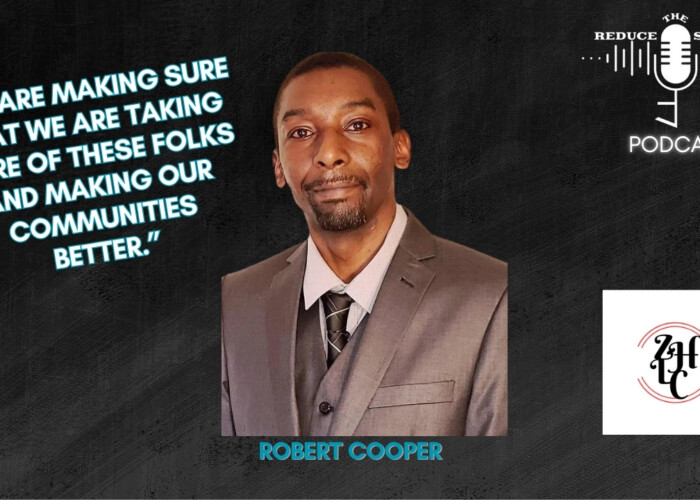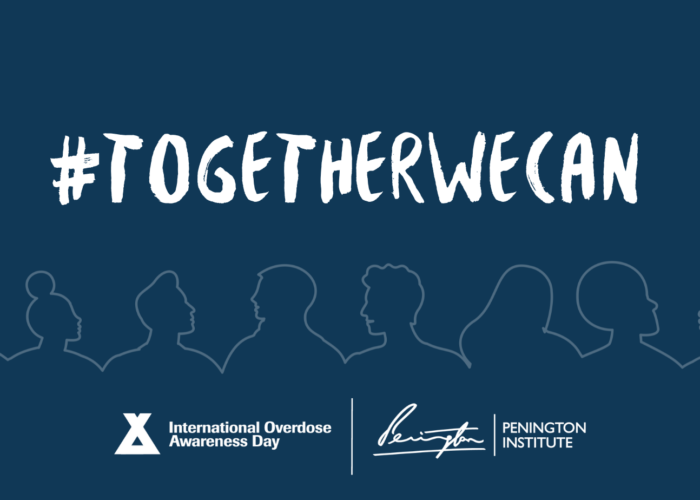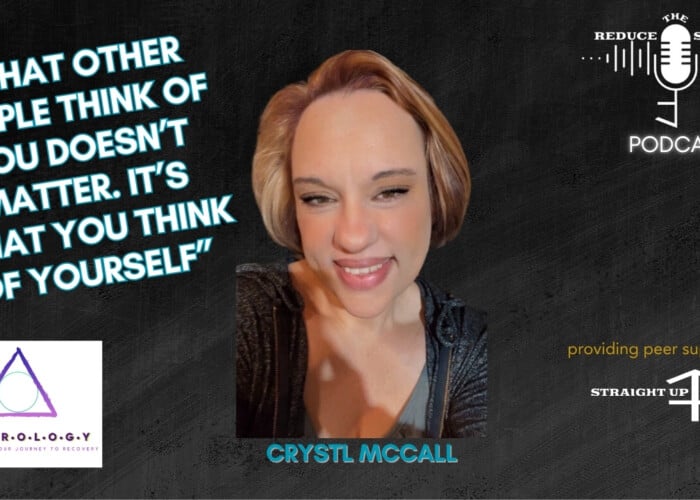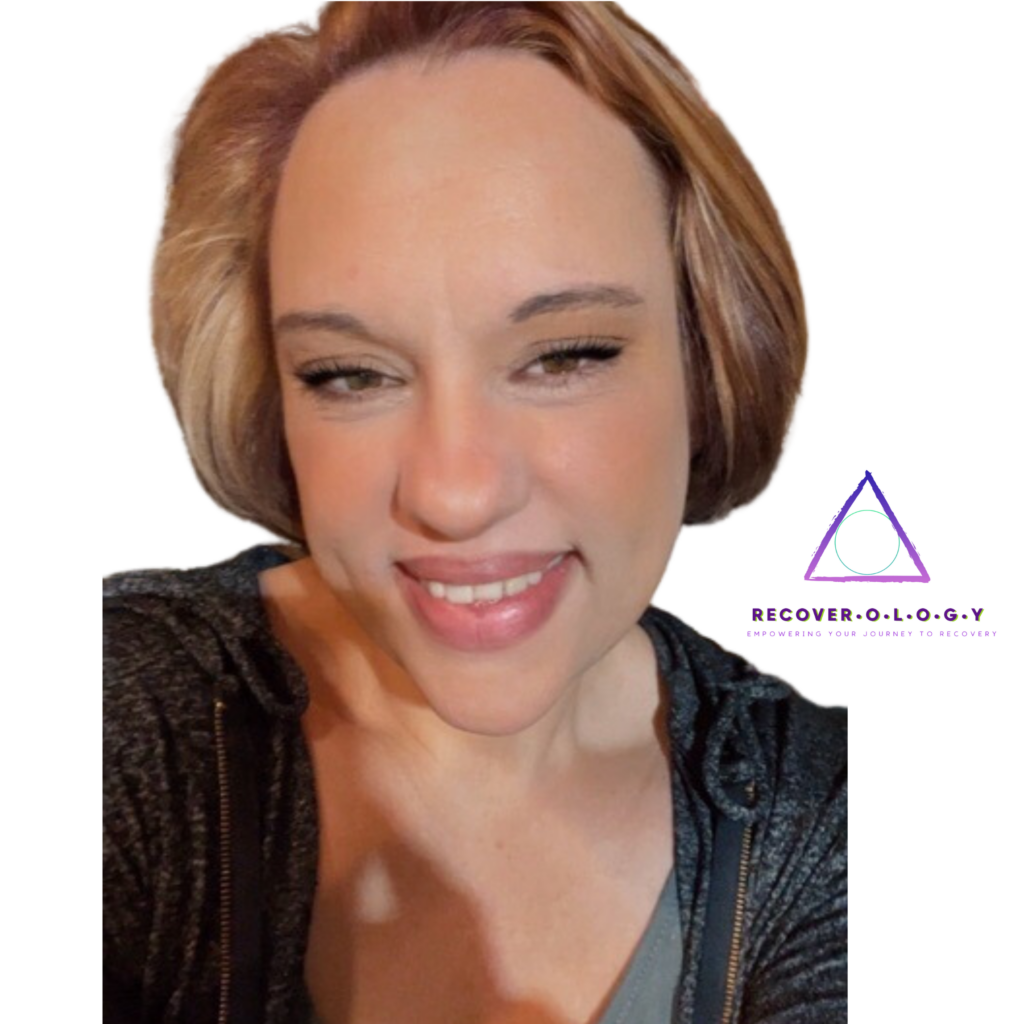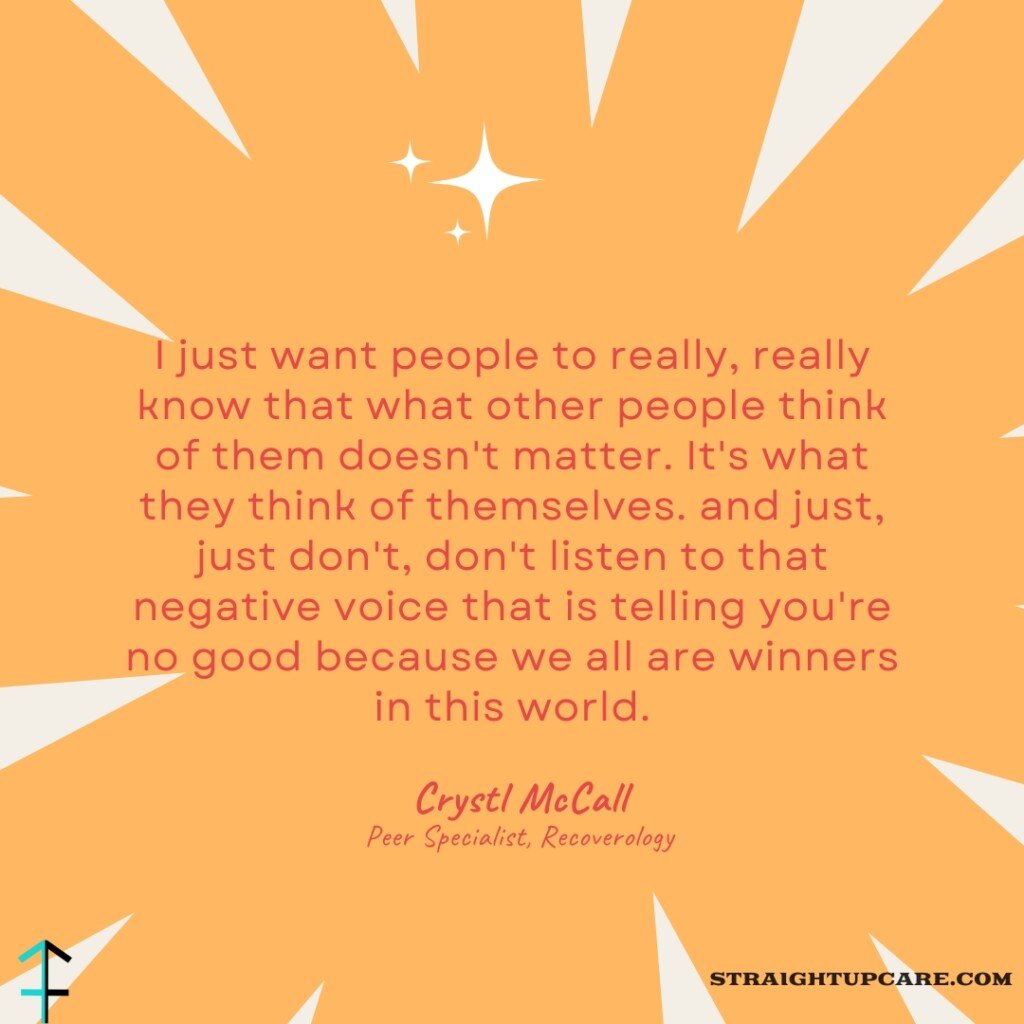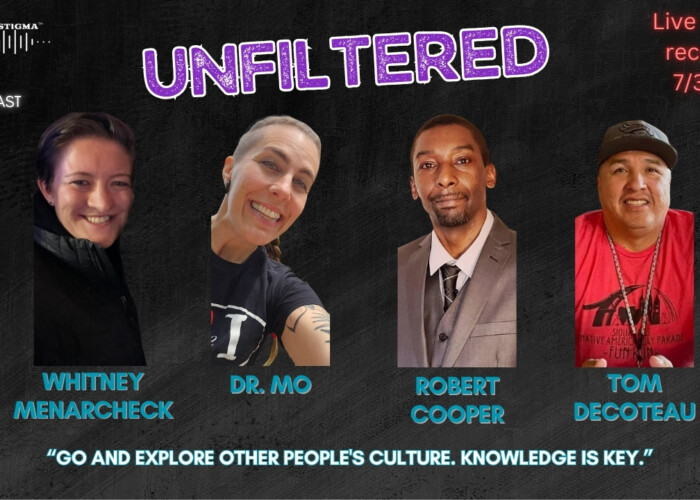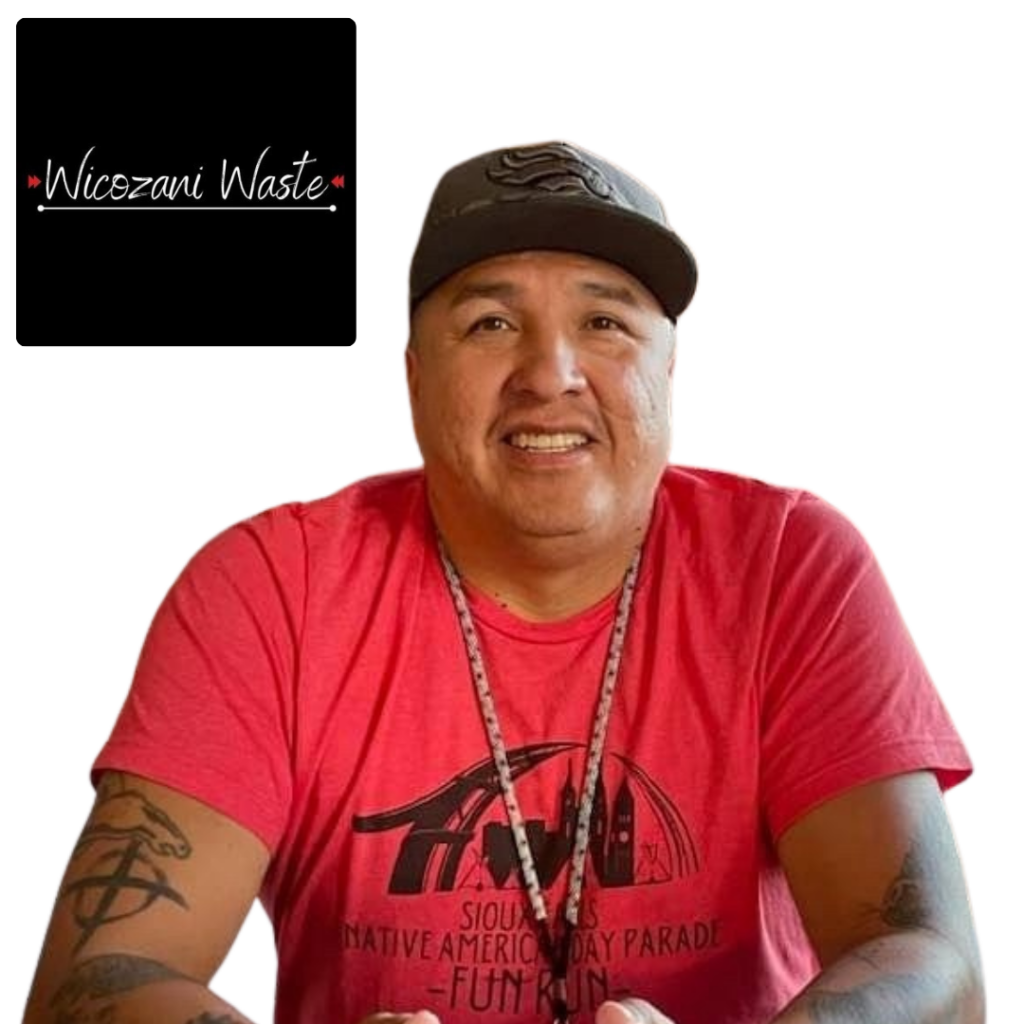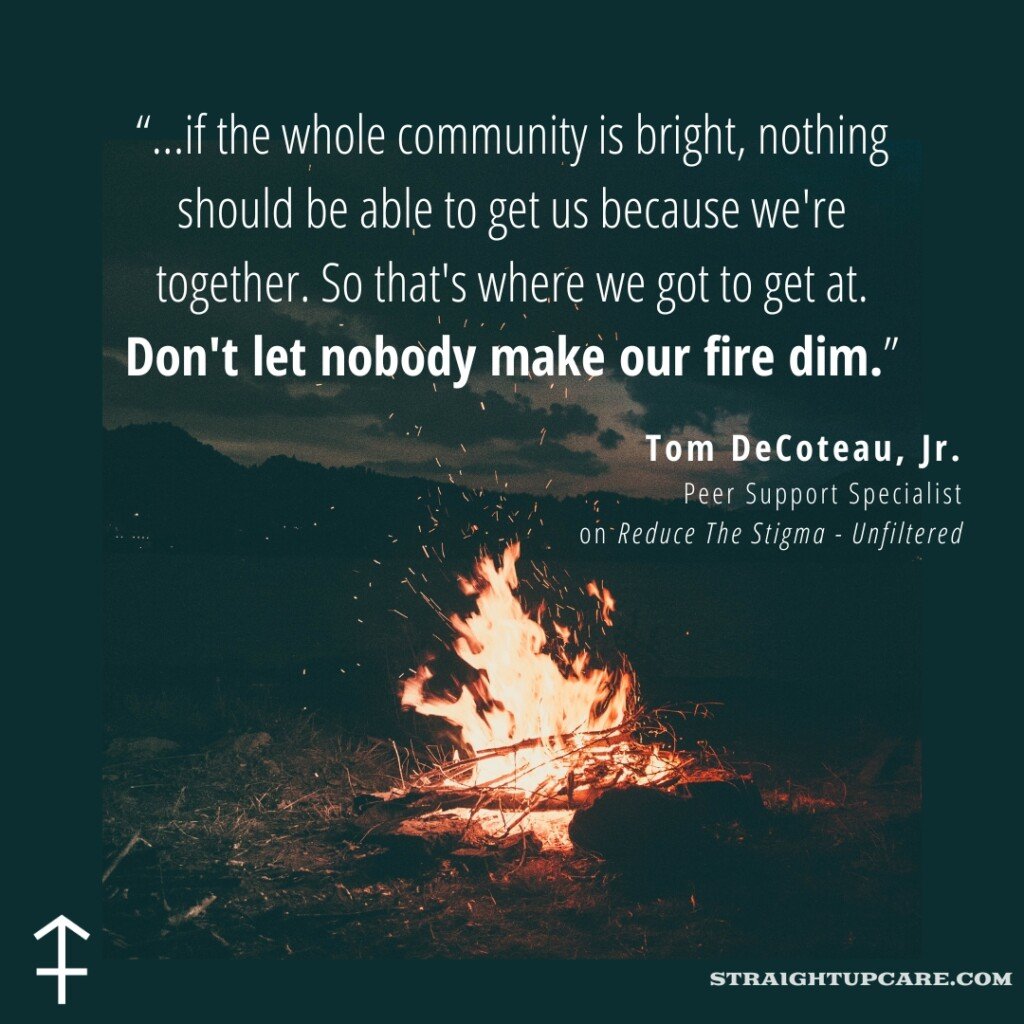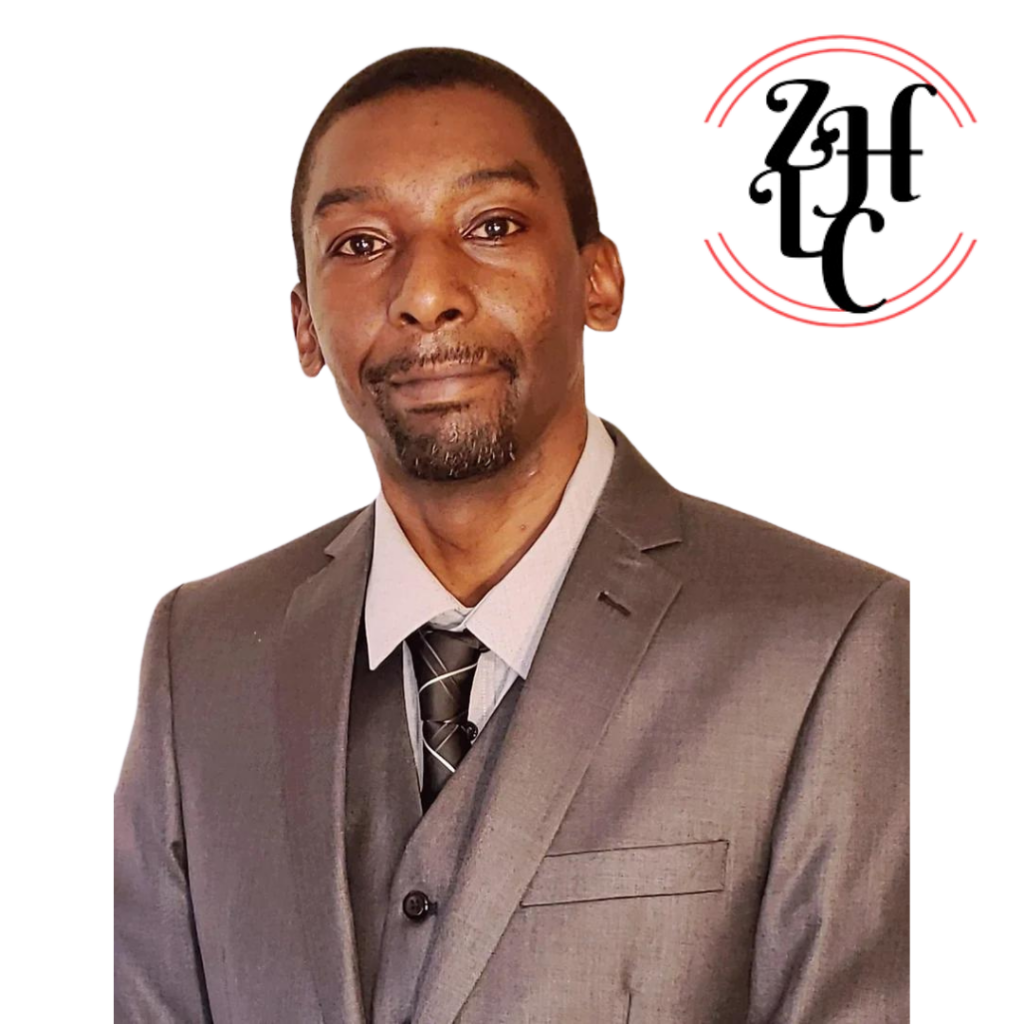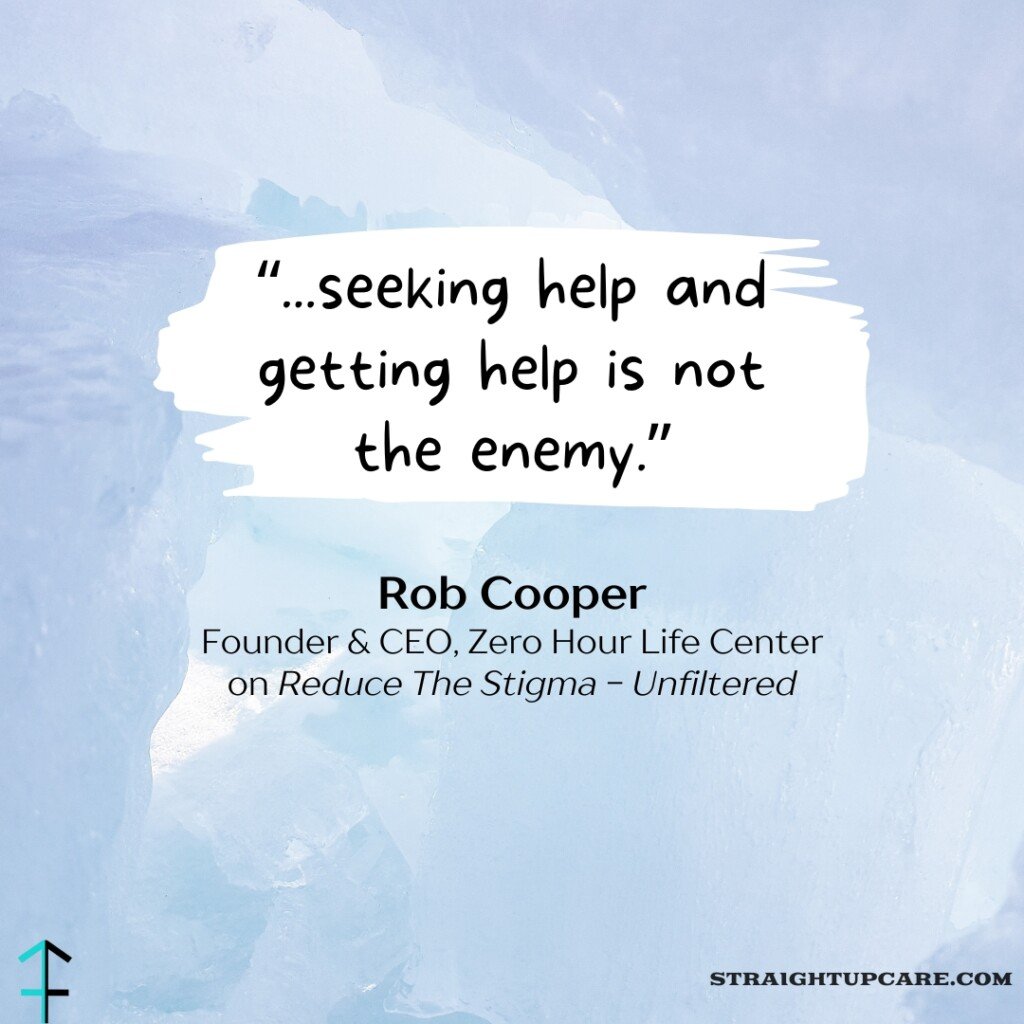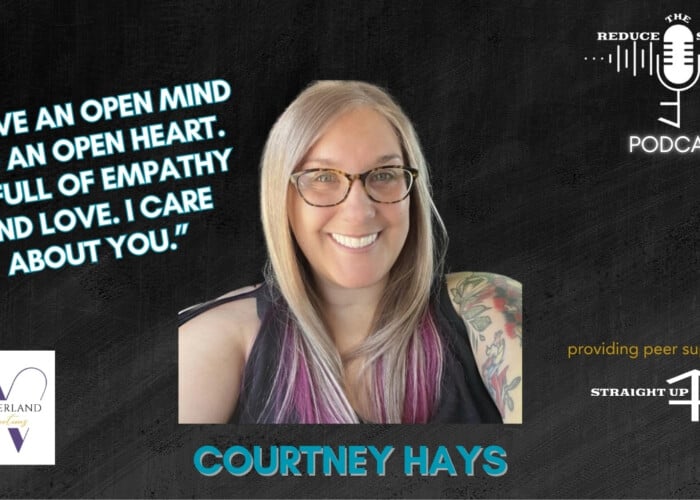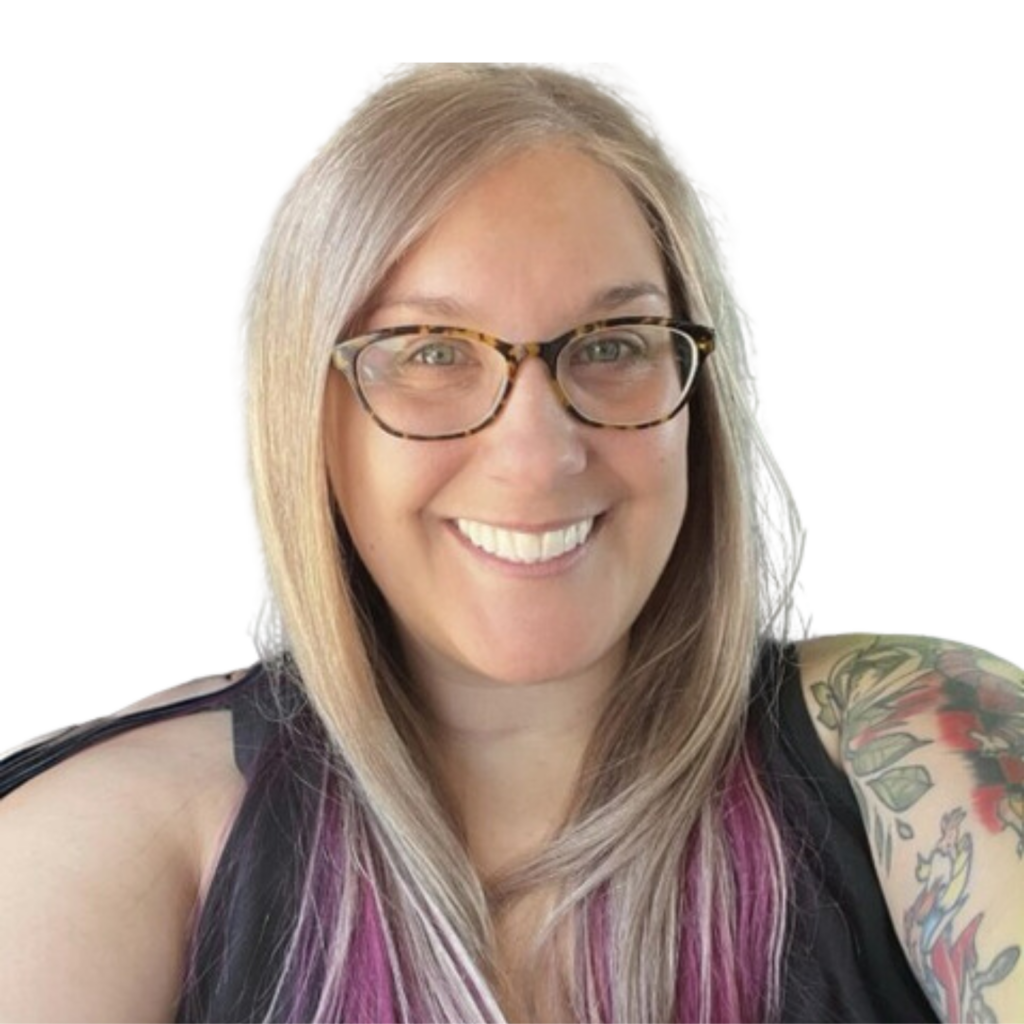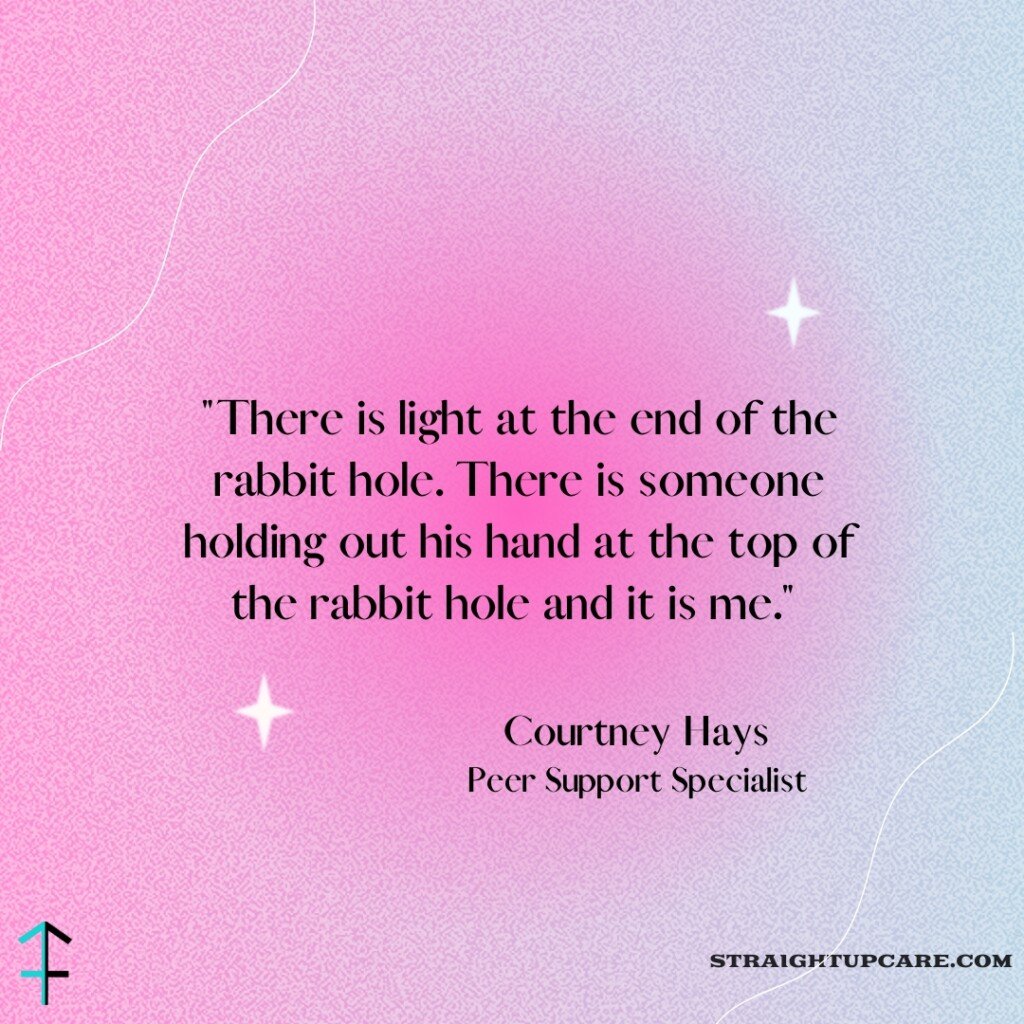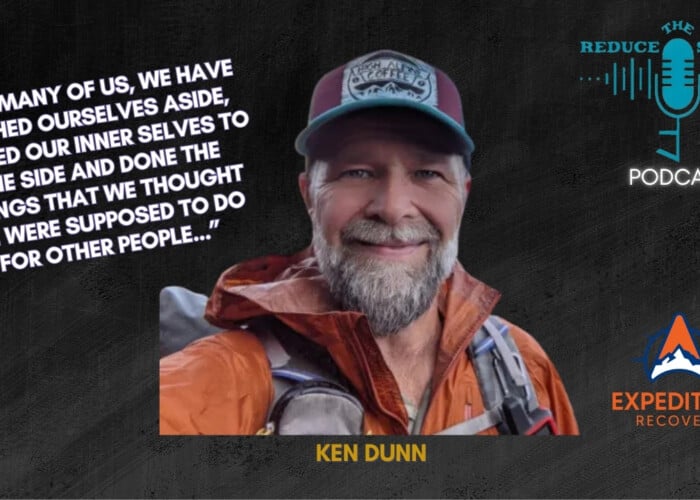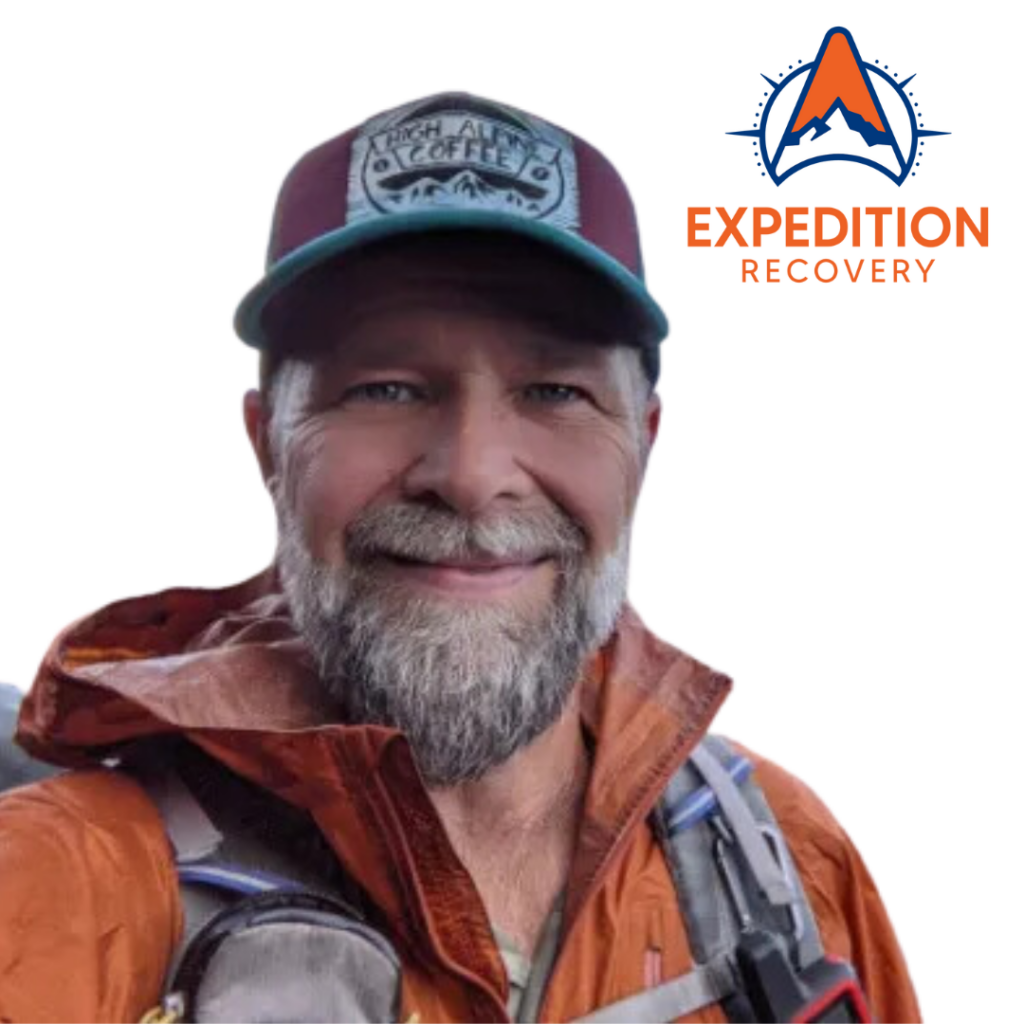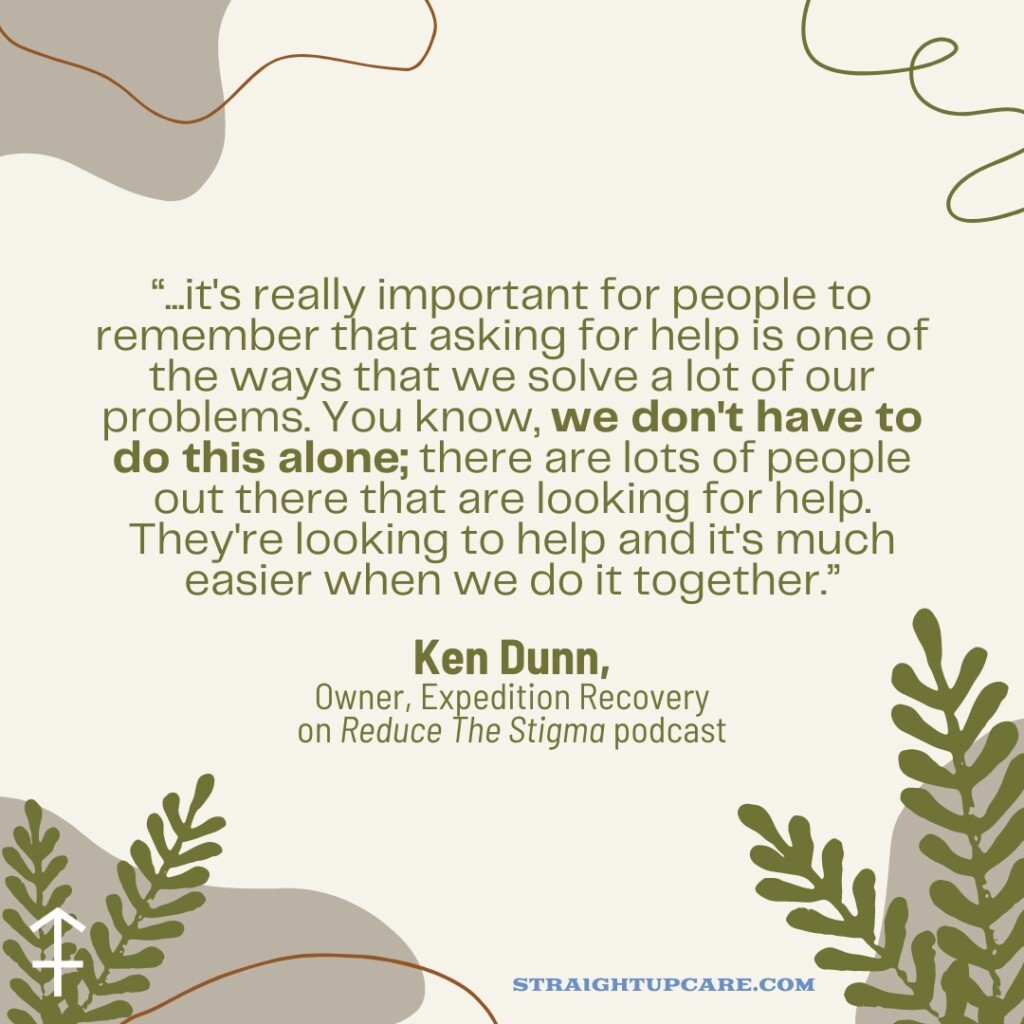Insights from Rob Cooper's Journey
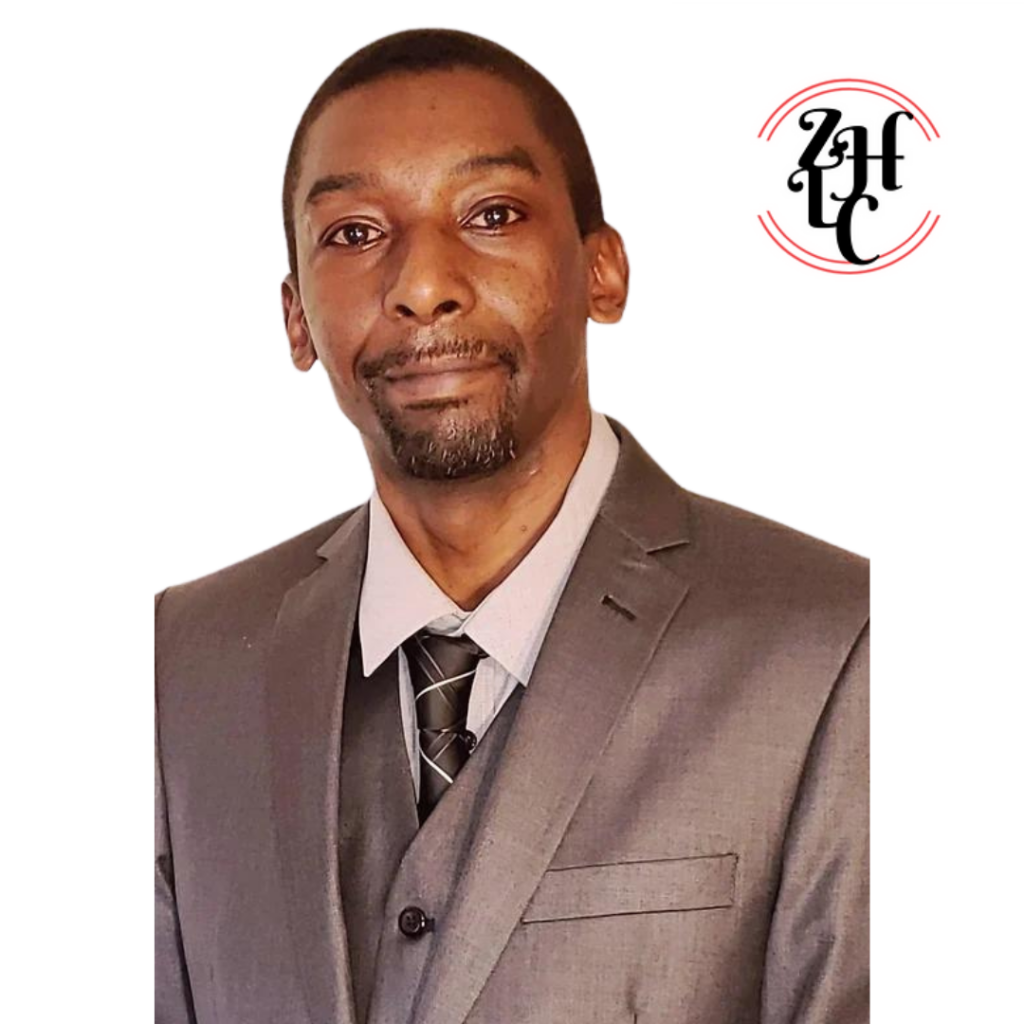
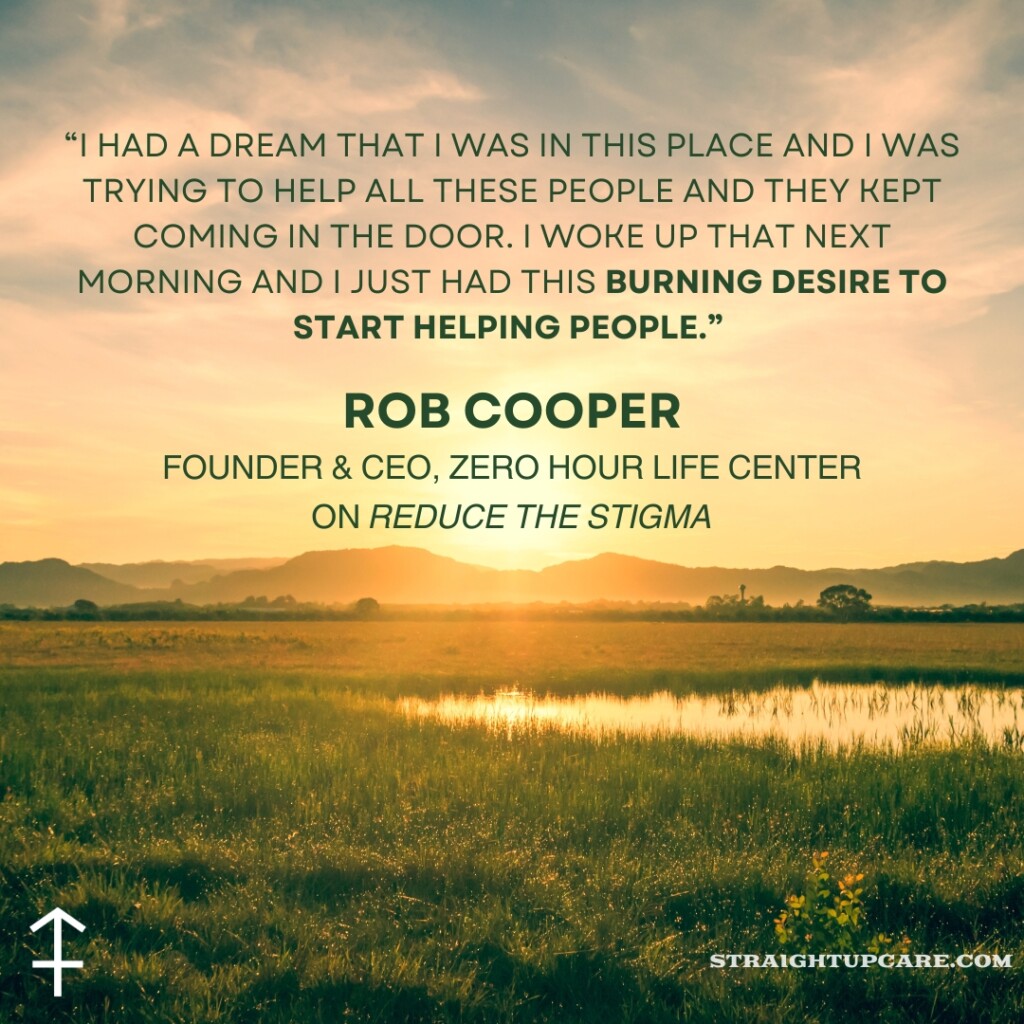
In a recent episode of the Reduce The Stigma podcast, Rob Cooper, CEO of Zero Hour Life Center, shared invaluable insights into the transformative power of a strong recovery community. Rob’s journey from incarceration to becoming a leader in the recovery space is a compelling example of how community support can be a cornerstone for lasting change. He discussed how his organization, Zero Hour Life Center, plays a vital role in bridging the gap between professional treatment and long-term recovery, offering a safety net for those reentering society and seeking to rebuild their lives.
Rob highlighted the significance of collaboration within the recovery community, emphasizing that no one can succeed alone. His story underscores the importance of community connections and the mutual support that enables individuals to overcome challenges and thrive in recovery. By sharing his experiences and the mission of Zero Hour Life Center, Rob illustrated how a dedicated recovery community can not only help individuals on their path to recovery but also create a ripple effect of positive change throughout society.
Click here for the episode’s full transcript.
About Our Guest:
Robert is a military veteran. He honorably served ten years in the United States Marine Corps. From 2008 through 2015, Robert worked various positions, including management in the food service and restaurant business. In 2016, Robert went through a very difficult time personally. He realized that he not only needed but also wanted to change his life for the better. Knowing he could not achieve recovery on his own, he sought help from his family. Robert knew he had to rebuild his relationship with God first. As he worked through this process, he realized that there are others who like him, needed help, support, and guidance without judgement. From this, Zero Hour Life Center was born.
Robert is a CCAR Authorized Recovery Coach
Never miss an episode of Reduce The Stigma – subscribe on your preferred platform
How to Watch
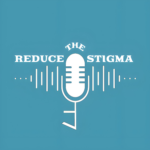
Watch on any device at
ReduceTheStigma.com

Watch on
Straight Up Care’s YouTube channel
How to Listen
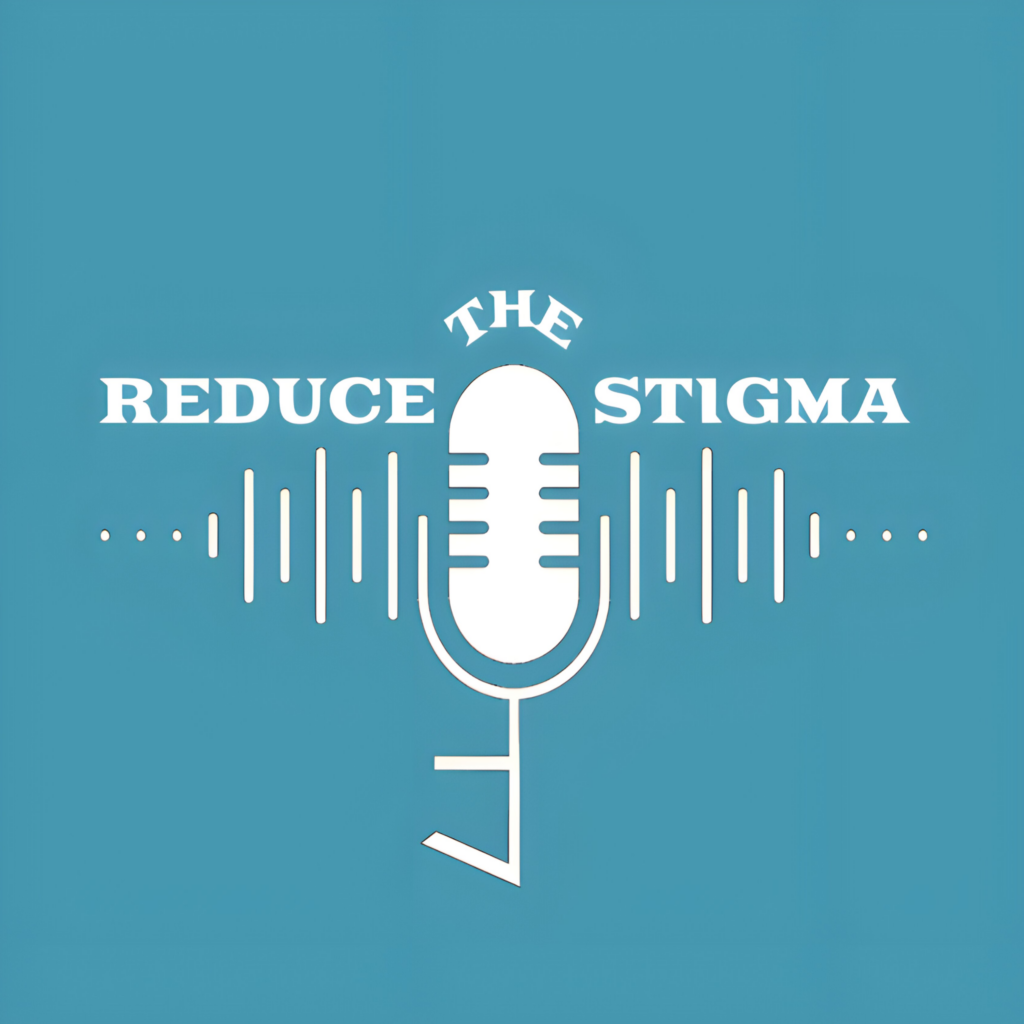
Our Podcast Website on PodBean!
Listen on Apple Podcasts!

Listen on Spotify!

Listen on iHeart Radio!
Follow Straight Up Care
Transcript
Whitney (00:02)
Welcome to Reduce the Stigma, the podcast that raises the voices of individuals with lived experience, as well as the organizations and people who support them. Reduce the Stigma is brought to you by Straight Up Care, the comprehensive telehealth platform for peer support services. Straight Up Care, where recovery is powered by lived experience. A special thanks to our sponsor, Syndicate 12, an online recovery community and social media platform. Visit syndicate12 .com. Together, recovery is possible.
Today, I had the pleasure of talking with Rob Cooper, CEO of Zero Hour Life Center, a recovery community organization in Florida. And while we talked about a lot of different things, one thing’s held true throughout, the focus on community. Rob’s approach to supporting others is truly rooted in community connections and collaboration. And he reminds us that each of us can have a profound impact in the recovery journey of others. So let’s just make sure that that impact is positive.
Be sure to like, subscribe, and share. It really does help us grow and reach more people with our stories. Let’s get started.
Whitney (01:16)
Rob, thank you for joining me today. I’m excited to talk to
Rob Cooper (01:19)
Thank you for having me. I’m glad to be
Whitney (01:21)
Yes, Dr. Mo introduced us and set this up so that we could talk and really share awareness of what you’re doing at Zero Hour Life Center. As I understand that this is a mission very close to you and I was wondering if you could just tell us a little bit about who you are and what led you to create Zero Hour.
Rob Cooper (01:45)
So I’m currently the CEO for Zero Life Center, which is a recovery community organization down in Florida. And we’re on the West Coast of Florida. And I found this when I was in jail. So I was in jail for, I moved from North Carolina, met my wife and I moved down here. She was from Florida. So I moved down here with her.
I went down here to escape of the stuff I was doing in North Carolina and I wanted a fresh start and I took old behaviors into a new environment. so Florida said, no, we ain’t playing with that. and they set me down for seven months, but while I was in there, it was very, it was, it was good for me. And people are like, jail good for you. Yes, it was good for me because
jail made me the who I am right now. And. But I always knew I always come from I came from a structure of family, I came from, you know, both parents, I came from, you know, joining the military, so I had extra structure from my time in the Marine Corps. So but I. I came down here and Florida said, no, we’re not we’re not tolerating that. And they sent me down for seven months. And when I got in there.
people was asking me like, what are you doing here? You don’t look like you belong here. And so this young kid came, he was in there for loitering and trespassing and he was a homeless kid and he clung to me and I kept helping him navigate things on the outside. And he finally got his release date and that day he was getting released, he said, look man, he said, thank you for helping me.
I think I got it and I said, okay, congratulations, you know, and I hope to see you on outside and he said, look man, he said, do me a favor. said, promise me that you’ll start something on the outside with people like us. And at the time I didn’t know the fate of my charge. So I was like, yeah, whatever. He’s like, no, no, no. He said, because you get us. And I said, okay. And I went to sleep that night
I had a dream that I was in this place and I was trying to help all these people and they kept coming in the door. I woke up that next morning and I just had this burning desire to start helping people. And so I ran to the phone when the phone got on, called my girlfriend at the time, which is my wife, said, hey, I want to start something. And she has the background in, she has an MBA. She has all that background in, in starting stuff and all that. so,
she took it and ran with it. She had a Facebook page started and everything. And when I got released in, she said, Hey, you want to start this thing? You want to continue? And I was like, sure. And so we just hit the ground running. And so that was in 2017 and we really didn’t hit our peak into 2020 because before 2020, know, 2020 was COVID.
Whitney (05:08)
Right?
Rob Cooper (05:09)
And before that we were using all our technology because we didn’t have a building. We were starting out and people used to frown upon me and say, hey, you don’t have a building. And so when 2020 happened, we were already doing things remotely before remote came. And yeah, I was heavy game, so it didn’t hurt us. It just it launched us. And so and then from 2020 to now, it’s just been a peak and we’re just been, you know, serving the people.
Whitney (05:22)
Right, so you were ahead of the game.
Right?
Rob Cooper (05:37)
treating people like they want to be treated, growing rapidly. And I had people tell me, said, man, you’re doing things within, you did stuff within seven years that some people don’t do in 15 or 20 years. And in lifetime, and I can’t take credit for that. I think my higher power got in my understanding that believed in me and picked me to do this. And I don’t take it for granted. I don’t.
Whitney (05:49)
or a lifetime.
Yeah. Wow. That is incredible. So you’re incarcerated and you had an impact on someone there. And you don’t normally hear about someone kind of stimulating that idea in that situation. imagining someone who’s getting released himself, like headed out. Probably in most cases, people are very focused on
man, I can’t wait to get out of here. I can’t wait to get that first burger, this, that, the other. And he took it because you had such an impact on him. He stopped and said, man, like you can’t, you gotta do something with this gift you have. Wow. And then you did. That’s amazing. And so, you know, when you returned to the community then, and I know you said like your girlfriend now wife was
Rob Cooper (06:32)
No,
Mm -hmm. Yeah. Yeah. Yeah. Yeah.
Whitney (06:57)
helping you out, get things started. What role did that play on your return to the community, having this new calling?
Rob Cooper (07:05)
It really, you know, the pieces of the puzzle started to happen because my first job coming out of jail was working at a golf course, which was a perfect thing for me because it was peaceful. It was out in Mother Nature. And if people don’t understand, taking a walk out in Mother Nature, you could do some best thinking, you can do some best strategizing. And so that was the first job.
The maintenance director, which I’m still me and I’m still talking, whatever the maintenance director really, believed in what my passion was. And he was pulling it out of me. He’ll come up to me and ask, hey, what about this this organization you’re starting? And he would and I would pitch it to him. And and then I moved up at the golf course where I stopped doing the maintenance and then I was a spring tech.
I had a lot of time out there spraying weeds in and really, really focusing on really getting this organization going because like I said, it was, you know, I did Marine Corps and running a nonprofit is probably one the hardest things you can ever do. And it’s not for the faint at heart. It’s, you know, because it’s, you have something.
and you believe in it, now you gotta get other people to believe in it. You gotta get the community to believe in it. And so right now, you know, with our success right now, what we do is we go back and help younger nonprofits, for -profits, anybody that wanna start a business, we support them and getting them to be sustainable because I remember those days, it was lonely. We asked for help. No one would help us.
We had to go, I remember we had to go to Barnes and Nobles and get a book of how to start a nonprofit. And we did that. And we vowed to ourselves that if we ever become successful or get to a point of success, that we’re going to turn around and help others. And we have been doing that. And so, you know, it was just the steps. And I look back at it, you know, and could I write this story? No, because
My passion was I was going to be I was going to open a restaurant because I did food service while I was in Marine Corps. When I got in Marine Corps, I continued food service, working in different restaurants. So I thought that was my passion. was my that was my in career. Just, you know, open a restaurant and help people in that way. But my God had a heart. My higher power had a different plan for me. And so and so here we are now. Here we are now.
Whitney (09:54)
Yeah. And, and you already said like, you’ve just been taking off and the amount of things you’re doing, I mean, hearing about, I imagine it’s not like a formal program, or at least you’re not advertising it as a formal program, how you help other businesses and nonprofits. The programs that you do have on your website, there’s a lot you’re helping teens, you’re helping mothers, you’re helping individuals returning to the community. Like you are covering.
so many different populations. And I’m curious, know, with all of that going on, where are you seeing that there’s still a significant need? You know, you have these programs addressing things, but what’s standing out as, okay, we still gotta take this on next?
Rob Cooper (10:44)
Well, it’s funny you said that every morning we do morning huddles with our staff. And today’s question was what innovative things we can do to better serve our population. And one of my guys, my IT guy said, look, I want us to effect, I want us to perfect what we do now before we move on to newer projects.
Whitney (11:11)
Right, yes, yes.
Rob Cooper (11:12)
And so right now for us, you know, is that it just happened that way. Like I said, and if I can go back 2017 and only thing I want to do is help people. And that was my request. I said, I just want to help people. Everything else started to come because I started to do this first program called SoarWorks. And that helps people that’s facing homelessness.
or at risk of homelessness to apply for social security benefits. Because I was going around and I was talking about recovery and people still were stigmatizing me because I was an African American guy going around talking about recovery. didn’t fit the mold. And then they were comparing me to NAA or one of the other fellowships. And I was talking about recovery community organization and they didn’t know the language.
the lingua at the time. so when that, you know, now that program that got me into the rooms and really got me to sit at the table, it was launching. And so, and I felt that we were only seen for that. And I said, okay, we got to build up our recovery support services. Then when COVID happened, that really helped us get the recovery support services. So back to your question, where I see us right now is
You know, we are touching a lot of different populations. You know, what I really, really want us to strive to be is just, you know, that community organizations that make our community better, really. And that’s what I’m honing on is to build in a stronger recovery community in all our communities and really giving people a chance to grow in the community and be productive members of society.
And, you know, and if anything else come our way, we have a lot of opportunities. I have people who ask me to do this and do that. Now I pick and choose what capacity I want to grow this thing, because it’s not all about territory. It’s not all about growing this thing to be massive or whatever. Now, we did have a big goal. I’m going to tell you right now, our big goal is to be in all 50 states. Really.
Whitney (13:40)
Yeah.
Rob Cooper (13:41)
And do I still think we can? Yes, I think we can. Will it happen? You never know.
Whitney (13:50)
Right? Exactly. mean, it speaks to even the roots of the movement is that it came about not because it was planned, but because it needed to happen. And services like yours are needed everywhere. So there’s opportunity for sure. And you use the term recovery community and that is a term that’s used a lot. There’s really no one definition.
I’m curious, what do you see as central components to having a recovery community for someone to be successful, like you said?
Rob Cooper (14:30)
You know, it’s first of all, has to you have to get support from your community. You have to have support for your community. They have to understand how to accept someone that’s balanced, balanced substance use and how to accept someone that’s in early recovery or further in their recovery, long term recovery. OK, how we looked at it by our employers. Are you recovery family employers? All right. With law enforcement.
You know, do you have diversion programs set up in your in your police departments or your shared departments that will divert someone to get help instead of punishing them? And then two is, you know, is is have to advocate on legislation to better serve the people in recovery to give them a better life. And so three pillars for us is education, empower and advocate.
It’s the best. That’s the three pillars I stand on. And, you know, it’s working with our politicians, working with local state federal because I look at this. I look at this, this this epidemic that we have. And I sit back and I look at it and I say, it’s been around since the eighteen hundreds. OK, is it going anywhere? I don’t think so. But we could do better.
We can do better. We’re pushing, we put money behind it. But, you know, on the opposite side of it, on the opposite side of it, once someone becomes well and get into recovery, it’s still a battle for them to be able to live a life in recovery. Right now, you know, we are, we are forcing people to be unhoused because rent sky high. Landlords want three times the income.
Whitney (16:18)
Yes, yeah.
Rob Cooper (16:28)
Okay, we’re moving up. So now Florida minimum wage is going to go up to $15 an hour. It should have been $15 an hour about 10 years ago. And so $15 still will not help people to be successful and live a comfortable life. So for us at the Recovery Community Organization is we have to work with our participants, our consumers, or our peers and say, look, you
Whitney (16:40)
Okay.
Rob Cooper (16:57)
How are you budgeting? Okay. How are you planning for when life happens? Do you have $500 saved in your savings account? Or are you just still in recovery with some old behaviors that you had in substance use? And so, so that’s where I really do think that the recovery community organizations can be so important is, you know, breaking up from your four walls at your recovery center.
and get involved in your community. Get involved, get involved, you know, because I say this a lot is that I have these broad shoulders and there’s a lot of people standing on my shoulders to do the next right thing. And by me in these rooms, I got everybody else that can get a chance to get into these rooms. And I’m just ordinary Joe. I’m just ordinary guy. So.
But, you know, advocating, advocating for what is
Whitney (17:57)
Yeah. Now the whole setting people up for success. I want to come back to that because I know your mission and I’m going to read it. You know it, but I’m going to read it for everyone. Zero Hour Life Center is a not -for -profit recovery community organization that provides support and services that help to bridge the gap between professional treatment and long -term recovery from substance use and homelessness.
is such a crucial component. We focus and we jump, we’ve spent time on prevention and then we say, hey, you have a substance in you, let’s get it out of you. Let’s get you to stop using that substance or whatever the model says. And we focus on that formal treatment. Then we just kind of let drop off. And there’s that bridge to long -term recovery. Why is it
Rob Cooper (18:48)
Hmm.
Whitney (18:55)
You may not know this, but why are we not paying more attention to that? tell me about how you’ve seen people getting behind bridging
Rob Cooper (19:04)
Well, it’s this is what I think. This is what I think. And I’ve been around some successful people. OK. We’re in a crisis. All right. We’re in a crisis all around homelessness, mental health, substance use. We’re in a crisis. OK. There’s people that are out there taking successful people get rich in the crisis. OK. So how we bridge the gap.
All right. Prime example, I had a gentleman had to have somebody called me on Sunday and they said, Hey, my significant other just got out of the apartment corrections. They gave him a sleeping bag and said, go.
Whitney (19:47)
Are you kidding?
Rob Cooper (19:48)
Come on now. All right. And so if we didn’t have the relationships and we didn’t bridge the gaps, we didn’t build those relationships that we have as at the recovery community organization, I couldn’t reach out to SoberLiv and the Oxford houses and say, hey, you know, can you help this gentleman? Okay. That’s what I mean. Bridging the gaps is, you know, it’s not one side at all. I can’t do it all. I got to have my octopus, my octopus.
Whitney (20:10)
Great.
Rob Cooper (20:18)
tentacles out there where I Okay, you need transportation. I may have a relationship with someone that deal transportation you need housing I need to have a relationship with a landlord that can work with us and It’s not for me always take and take and take in it’s a dual relationship. Okay. Hey, what can I do for you? Okay, I’m gonna make sure miss landlord. Mr. Landlord that your tenants are successful in your homes
So you’re not spending more money evicting these people and you’re making some money. Everyone wanna make money. And so, know, I don’t wanna be in a community just taking. I don’t wanna do that. I want people to have the same opportunities I have. And I say this a lot and I don’t care what you see on the big bucks, cable news stations about…
the United States of America, we still live in a country where you can get a second, third, fourth chance at this thing, but you need somebody to help you. so when I mean bridging that gap, yes, there’s a big gap for people getting on treatment, getting out of jails. I love what the federal prison do. Before you get released from federal prison, they can put you in a halfway house. You’re gonna spend some time right there and get acclimated back to the community.
Whitney (21:35)
Mm -hmm. Right.
That makes sense.
Rob Cooper (21:41)
state, county, they don’t do that. They just, okay, you gotta go. Treatment facilities, when your time, your insurance run out, or if you’re at your 30, 60, or 90, or however long, you gotta go. And even if you don’t have something lined up on the next part or the next stop, you gotta go because, and I understand the business. I gotta fill that bed. I gotta get somebody else in there. I understand that. So.
Whitney (21:44)
Ugh.
Right, right. I’m not responsible for you anymore.
Rob Cooper (22:11)
Right, right. And so that windows of opportunity with someone getting out of jail, prison or treatment is that those first 15 minutes, first 30 minutes are crucial because they can go to the wrong place, get the wrong people and they’re right back into the mess that they were trying to get free from. So do we get it right all the time? No, there’s some people that, you
barks to me bridges out there and you can beg and you can plead and they’re like, no. And you know, the hardest ones that really, I have a hard time trying to help someone that’s on probation because you got to transfer probations and all that. And so if some probation officers are lenient, say yes, we’ll transfer the probation, but some just, you know, no. so bridging that gap is, is, is really important because somebody bridged the gap for me.
Whitney (23:04)
Great.
Yeah. The community component, how you talk about these give and take relationships, I think I hadn’t heard of it in that way because normally we think about trying to deliver it all, right? A lot of programs want to try and say, okay, we’re going to have this wing that’s going to be about providing food and you know, but that’s not sustainable and that’s not leveraging resources in the community.
Rob Cooper (23:32)
You’re right. No.
Whitney (23:37)
By building these relationships that you have, you’re building up the community and people want to help. They may not realize it right away or realize the population that they want to help, but when they get the opportunity and it’s successful in helping, it feels good. And then that’s where you break down stigma. When you have that landlord who’s willing to give someone a chance and that person knocks it out success wise, that busts
way more than any, you know, billboard can.
Rob Cooper (24:11)
Mm -hmm. Yeah You know it It burns me up where people think they can do it all okay You cannot you cannot do this. You cannot do it all is because the need is so great It is so great. It is you know and so if we’re not sitting at the table with somebody different from us and I You know we
people that work in this field and people that deal with mental health and substance use or whatever, we are one of the, some of the most territorial people I ever met. Seriously, I’m gonna be honest with you. We are some of the most territory people that we ever met. And so, and, but we have to, we have to sit around, sit in front of someone that is not doing what we’re doing and build those relationships because you never know when you’re need that person. Problem example.
Whitney (24:50)
Really? Okay.
Rob Cooper (25:10)
I was getting my tow, I had my last truck I had, something happened, the batteries were going dead. I called a tow truck driver, I was at the gas station. And the tow truck driver really helped me out. He said, look, you know, I’m just gonna charge the battery and get started. So you won’t have to pay me to tow it. I said, cool. So I got his card, me and him talked a little bit. And really I appreciate it. them. About a day later, one of our clients, one of our consumers said,
Whitney (25:25)
You’re nice.
Rob Cooper (25:40)
I need to get my, I need to get a car towed so I can get it over to the salvage shop so I can get, make a little bit of money. This going to go towards my deposit for rent. If I didn’t meet that tow truck driver the day before, you know, and I called him up, Hey man, Hey, you remember me from yesterday? I remember you. was cordial. I respected him. And I said, Hey, I need your help. And boom, he helped her. And so now I’m putting that tool in my tool belt.
If someone else need their car towed or whatever, I have that. So it’s really, really important in the recovery community that you have to build a relationships. I say the key word and recovery community organization is community. It is. I just don’t get it. So.
Whitney (26:24)
Yeah.
Yeah. I mean, I’m sorry, go ahead. I have seen it, you know, I’m in the space, I’ve been in the space for, I don’t know, 10, 12 years now, and it is, it’s almost, it is territorial. think that’s a good way to put it. It’s very much a, my services are better. I think part of it is because of how little
Rob Cooper (26:33)
Down the quay.
Whitney (26:54)
reimbursement there is so it’s like I want to be able to keep my doors open but and I don’t understand it like you’re saying it’s community but also the problem is so big we’re not gonna go out of business no one’s gonna lose and that’s I wish I wish all of us went out of business that we weren’t needed that would be amazing it’s unfortunately not gonna happen so why are we being this way why are we pitting
Rob Cooper (27:15)
Me too. Yeah.
Whitney (27:23)
resources against one another. we see the reason you are being successful in changing lives the way you are is because you don’t have that ego first approach. You are saying we can all work together to do this. And that just causes so many the ripple effect from that. You know, the small businesses that then benefit the lives, the next generation of lives. It is all through that collaboration approach.
Rob Cooper (27:54)
Yeah, yeah. It’s because two is that
I can speak for myself, you know, when this thing started to go, okay, when this thing started to really peak, I did get a little bit of, I did have an ego and egos, having the egos, you’re not well, you’re not healthy. There’s something spiritual going on with you and it’s going to bleed off and everything that is attached to you. And if you don’t believe it, trust me, it will. Okay. And I had people bring me back down to earth.
Okay. And because when you haven’t had this level of success, it’s scary, it’s frightening. It will make you walk around as if your stuff don’t stink. And then the people that’s coming to you, they don’t care what you drive. They don’t care what your budget is. They don’t care how many staff you’ve got there. They just won’t help.
They won’t help. They don’t care if you black, green, purple, LGBTQ plus. They don’t care. They won’t help. And so, but before I got all the success, I didn’t feel worthy to have it. I didn’t feel worthy because of that. The people that we were serving, I felt that, man, they’re not getting this. So why I’m getting this. And so it took a lot of really, really.
getting around some good people. It took us a lot of therapy. I mean, it took a lot of therapy sitting down and talking to people. And now on this next chapter of my life, you know, is that it’s about legacy. It’s about legacy and not just Robert Cooper. It’s that every person that we serve that gets onto better. And
They have kids or whatever or people attached to them. That’s legacy. That’s legacy. If they’re living the life that were destined for them, that’s all I’m asking for. And I had to come back down to earth to understand that. And when you become humble and you really put people before you and then you start receiving the fruits of your labor. And so, you know, I was telling my staff this morning, I said,
I, when I see a person panhandling or flying a sign in the middle of the medium, I look at that person and I tell myself that could have been you. That could have been you. Your addiction could have took you that way. You could have been there. And I’m not disconnected from that person just because I got titled, just because I drive a fancy truck, all this crazy, this got degrees and all that. And I still have the ear to, to the people that still out there surviving.
And I’m not going to lose that. I’m not going to lose that. so but, you know, it is anything that got money attached to it. Yes, we become competitors and and and and it drives me crazy. But only thing I can control is me and I control what zero life center do and and just, you know, really, really make sure that.
We are following our mission. We are making sure that we are taking care of these folks and really, you know, making our communities better.
Whitney (31:30)
Yeah. Well, it sounds like you’re extremely successful in doing that. I imagine the impact of your work, and I’m not talking like data necessarily, I’m talking about impacted lives. I imagine just the hope that you are delivering. And it just sounds amazing. And I know we talked about so many different things. You have so much going on.
And I applaud you and admire you for saying, okay, we’re gonna like stay the course. We’re gonna keep, we’re gonna do what we do and do it really, really well. And as the future continues to unfold, I imagine, you know, that you will see those accomplishments of different visions and goals. But also, I’m looking forward to the people who start their own.
you know, organization and say, it’s because of Rob. I imagine there may already be people doing that because you’re very humble and just really demonstrating that people, know, any individual can do this, but it takes that community. And so you are facilitating it by saying, I’m going to share my knowledge, which doesn’t always
Rob Cooper (32:49)
Yeah. And you know, it doesn’t make me, it doesn’t put a feather in my cap to sit there and hold all this stuff inside of me. Then when I’m dead and gone, it’s only in the graveyard and nobody else can get it. But it’s, you know, it’s, live in a society now that I grew up with people help people. I grew up in neighborhoods where the neighbors helped each other. And
Whitney (33:00)
Yeah.
Rob Cooper (33:18)
And I was raised that way is to I could hear my dad telling me, you know you respect them and I’m gonna use a stigmatizing language but you respect the bum on the street because that bum did not do anything to you and I still hold on to that and I respect everybody I respect people that you know, I just it’s just me because I Never know when I’m gonna need that person That person could be dirty today
And two years from that person being the suit and I only recognize them and they can say, hey, I remembered you, you passed me at Walmart and you didn’t say nothing to me. But now you’re standing in of me because I have a key to opportunity that you want. And so I, you know, I really take that in the heart is that people can change. People can change. And so my goal is really, and you know, right, you put the head, you put the hammer on the nail is
Whitney (34:07)
Yes.
Rob Cooper (34:14)
I do want people to become entrepreneurs. I do want people to become entrepreneurs. I do want people to start something. I do want people to, you know, have their own. And because when you become an entrepreneur, OK, is that you’re starting something and depending on how your funding comes from, you don’t have to tell your story of your past so much.
instead of going for a job and you take the background and now you got to tell that same story that you’ve been trying to dishing yourself from. And then is you can turn around and help people. And people don’t understand about recovery community organizations is recovery community organizations is a place where you give, you are a second chance employer. Okay. You’re a second chance employer and you overlook those things that people.
and the secular or other businesses may say, no, you can’t come here. And so, you know, but sometimes you get tied up with different funding or whatever that you’re receiving. So but the origin of Recovery Community Organization, that’s what it was about. That’s what it was about is that anybody can start a Recovery Community Organization. I can have a body
Whitney (35:24)
Right, Yep.
Rob Cooper (35:38)
If I hired nothing but people in recovery, we’d close the body shop down from 12 to one and we do a meeting. And, you know, I’m promoting recovery. I’m helping my staff. I’m hiring people in recovery and we’re making the community better. That’s the whole thing about it. And it drives me up the wall that people take this thing that’s so good and twist it and fold it and stop. Stop.
You are hurting the forefathers, people that shoulders that I’m standing on having this opportunity that said, look, you know, the William whites, the Phil Valentine’s, you know, all those pioneers in this recovery movement, I’m staying on their shoulders. I’m staying on their shoulders. and it’d be, I would be selfish to try to twist this thing and fit this thing to fit Rob.
And that’s wrong. That’s wrong. So I get passionate about this thing. I really do. get passionate about it because, you know, it is saving a lot of people’s lives and we got a great thing going on.
Whitney (36:41)
I do.
Yeah, and I think it’s easy, know, the attention, the funding for anything related to addiction, primarily opioids, is more than it has ever been combined really, which means that there are gonna be some players who come in and just see the business opportunity. And while business drives innovation, competition drives innovation, and that’s wonderful, we have to remember their lives at stake. And so we can’t,
the purpose, that second chance, overwhelmingly accepting and conducive environment for someone to be successful, not to be perfect, because we’re all gonna mess up, to be able to just rebuild that life, rebuild the life they want in a place that understands what the challenges will be and is gonna say, hey,
Rob Cooper (37:31)
Mm -hmm. Mm -hmm.
Whitney (37:44)
I get it, I’m here, I understand, and what can I do? I can shut this shop down for an hour so we can have a meeting. Is that gonna really hurt productivity? No, it’ll probably boost it because your employers are gonna feel supported and they’re gonna feel loyal to you and appreciative so they’re gonna work harder. All we have to do is just say, let me just think about what could help this person. And it comes back tenfold.
Rob Cooper (37:54)
No. Right.
Mm -hmm. Yeah. Yeah, it does. Mm -hmm.
Whitney (38:12)
Yeah, wow. Well, I feel like we have touched on so much and could easily keep going. I love your passion and I am honored to, you know, pick your brain in a conversation for a bit. I know that you have your own shows, so you have Fired for Recover. gosh, I’m blanking on the name. I have it right here. Okay.
Rob Cooper (38:37)
We used to do fire for recovery. Now what we’re working on now is we have a podcast called from stroke of the strength. And what I want to do with that is that I want to show people and I want to show an audience of people that went through the struggle. Now they’re on a strength mode. I call this this is I’m in my strength mode, you know, and, and to maintain my strength, have to keep working at this.
Whitney (38:45)
that’s all right.
Rob Cooper (39:07)
And so I want to highlight people that went through the struggle, talk about that for a little bit and really show an audience of people that really turn their life around and doing great things within their community, organizations or whatever. And so we’ve been probably about 10 episodes in this thing and been one of those things that I wanted to do. I always was vocal, you know, if you ever follow going on our YouTube channels and
You see from back 2017, I look at that, I was young, had no grade and I was timid and like a deer in the headlights. And so I love putting a message out there. Do I want to be a motivational speaker? I don’t know. I don’t have no clue. But it’s all about touching one person, letting people see that, you know, you can go through things, but you can turn your life around and you can do great.
things. We need you. There’s a place in this United States of America where you can be great. So that’s really what that podcast is really trying to hit on.
Whitney (40:16)
Wonderful. How exciting. Anything else that you’d like to share for anyone listening to be aware of that’s coming out from Zero Hour?
Rob Cooper (40:26)
Our newest project like I said, we’re working on a respite house. We about to have that open next month It’s gonna be I used I call it and I’m taking a phrase from a colleague of mine that opened a respite house And he called his the catcher’s mitt. So it’s just you know, we want to catch those folks that overdose and come out of hospital they don’t have to go back to harm’s way they can come over to the rest of the house while we work to get them on to the next stop
It determines what they want to do. We’re not forcing anybody to do anything. They come over here, they can get a warm bed, they can get food, they can get introduced to recovery because when we do recovery meetings and stuff over here, they can stay up to 14 days. They don’t have to stay up to 14 days, but we just want to catch them and start working with them because it’s not a streamlined process of treatment. It’s not a one, you know,
I saw that if we say, hey, I can’t get you in treatment today, please come back tomorrow. Sometimes they don’t come back. And so if we have them here, that gives us enough time to work with them. if your community don’t have a respite house, get one. It’s that in between, it’s that before treatment, not sober living. It’s just to get them there, just to have more time to work with them.
Whitney (41:51)
Yeah, that’s wonderful and so needed. It makes me think that we talk about people falling through the cracks and you are filling the crack so that we don’t lose them. So that’s great. And my final question for you would be, and we talked again, we talked about so much, so it’s hard to probably narrow it down, but if people can only take one thing away from our conversation.
Rob Cooper (42:00)
Mm
Whitney (42:19)
and maybe it’s something we didn’t even really get to touch on, what would you like them to walk away with?
Rob Cooper (42:25)
You know, we said a lot of stuff today, you know, and best believe I’m not perfect. Okay, I’m not perfect. And yes, you see the success, but it takes a lot to keep the success. It takes a lot working on myself. And I just want to be honest with people, you know, being a businessman, I’m a businessman, you know, running a nonprofit is about business. You got to know your business, but you’ve got to make sure
You build a culture at your nonprofit. Your employees feel important. They feel needed. And then the people that you serve. Would carry your message. They would carry your message in it. If you’re out there struggling and you are at that verge, you stumble upon this podcast and you’re at that you at that cliff, you know, there’s people like me out there. I’m not the only one. There’s people like me out there that cares that really, really.
want you to be successful and I did not get here by myself, you know, and I want to leave this analogy with you. If you find a turtle on top of a goal post or a pole, it did not get there by himself. Something, somebody helped that turtle get on top of that goal post. Okay. You cannot do life by yourself. I don’t know why we as society think that we can do it by ourselves. We can’t, we cannot do this by ourselves. I still got people in my life that helps me.
I still got, I looked at this and this is my last thing I’m gonna say. We idolize all these movie stars and famous rappers and pop artists. Taylor Swift got a whole entourage of people with her that keeps her grounded, keeps her successful, keeps her going because that’s what we need and for us normal people that don’t have that type of success, we try to do this by ourselves. And you
You cannot, you cannot do it. So take that. You know, that’s why when you get the treatment, they rep people around you. You get a therapist, you get, you know, all these stuff. And then once you leave, you got to have those people beside you that walk between this recovery journey with you. And there’s no timetable on your healing. You can hear for 30, 40, 50, 60 years until they put you in the ground. There’s no timetable on healing. And if you understand that.
Whitney (44:23)
Wow, yeah.
Rob Cooper (44:52)
he would be successful. And I’m a firm believer in that. And you know, they’re to be the naysayers, they’re going to be the haters, they’re going to be people out there that tell you that you can’t do this. I had people tell me that is not going to be successful. Yeah, I cried. I blocked that out. But you know, it’s that young man that I wish I could find. And I would shake his hand. And I was hugging him and say thank you. Because he pulled something out of me that was in me.
And it took one person to pull this out of me. So just yeah, so that’s what I would leave with people. And you are successful. You are
Whitney (45:26)
Yeah.
Wonderful. so powerful. I can’t thank you enough Rob for taking time. I know you have a lot going on and I’m just so appreciative of the opportunity to talk to you Yeah
Rob Cooper (45:41)
Thank you for having me and really I appreciate you.
Whitney (45:45)
Well, everybody share this. Like Rob said, we can’t do it alone. Why are we trying? There’s somebody that you can be there to help out. Send this along to them. Maybe it’s what they need to hear. Check out Zero Hour Life Center as well as Struggle to Strength, Struggle to Success. Struggle to Strength. And just, you know, follow what Rob’s up to because clearly he’s making a difference and we all can too.
Rob Cooper (46:05)
Struck or destroyed?
Whitney (46:14)
So thank you, please like, share, and subscribe.
Rob Cooper (46:18)
Thank you.
